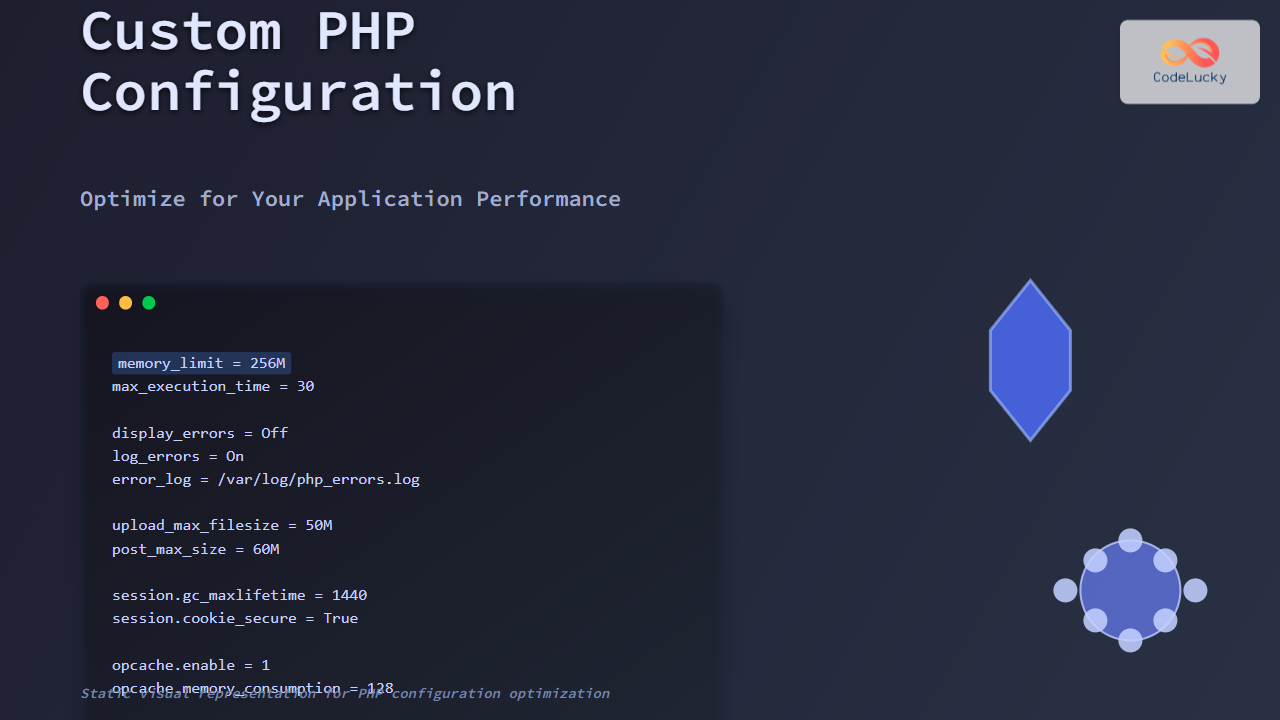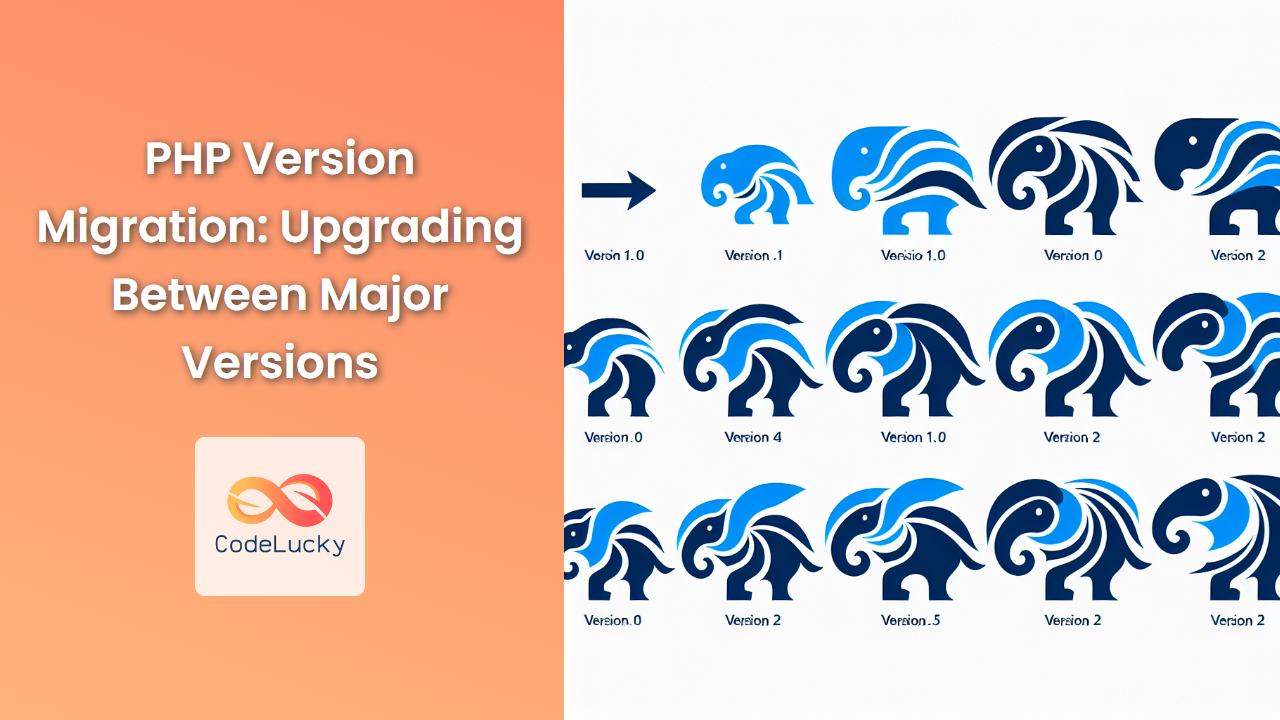In the world of PHP programming, efficient data handling and traversal are crucial skills. While traditional loops serve their purpose, PHP offers more sophisticated tools for iteration: Iterators and Generators. These advanced techniques not only enhance code readability but also optimize memory usage and performance. Let's dive deep into these powerful concepts and explore how they can revolutionize your PHP coding practices.
Understanding Iterators in PHP
Iterators in PHP provide a standardized way to traverse through a collection of items, regardless of how that collection is implemented internally. They offer a consistent interface for iteration, making your code more flexible and easier to maintain.
The Iterator Interface
At the heart of PHP's iterator functionality is the Iterator interface. This interface defines five essential methods that any class must implement to become iterable:
current(): Returns the current elementkey(): Returns the key of the current elementnext(): Moves the pointer to the next elementrewind(): Resets the pointer to the first elementvalid(): Checks if the current position is valid
Let's create a simple iterator to understand how these methods work together:
class EvenNumbersIterator implements Iterator {
private $numbers = [];
private $position = 0;
public function __construct($limit) {
for ($i = 2; $i <= $limit; $i += 2) {
$this->numbers[] = $i;
}
}
public function current() {
return $this->numbers[$this->position];
}
public function key() {
return $this->position;
}
public function next() {
++$this->position;
}
public function rewind() {
$this->position = 0;
}
public function valid() {
return isset($this->numbers[$this->position]);
}
}
// Using the iterator
$evenNumbers = new EvenNumbersIterator(10);
foreach ($evenNumbers as $key => $value) {
echo "Key: $key, Value: $value\n";
}
Output:
Key: 0, Value: 2
Key: 1, Value: 4
Key: 2, Value: 6
Key: 3, Value: 8
Key: 4, Value: 10
In this example, we've created an iterator that generates even numbers up to a specified limit. The foreach loop automatically utilizes the methods we've implemented to traverse the collection.
🚀 Pro Tip: Iterators are particularly useful when dealing with large datasets or complex data structures, as they allow you to define custom traversal logic.
The Power of Generators
While iterators are powerful, they can be verbose to implement. This is where generators come in. Generators provide a simpler way to create iterators using the yield keyword.
Basic Generator Example
Let's rewrite our even numbers example using a generator:
function evenNumbersGenerator($limit) {
for ($i = 2; $i <= $limit; $i += 2) {
yield $i;
}
}
// Using the generator
foreach (evenNumbersGenerator(10) as $number) {
echo $number . " ";
}
Output:
2 4 6 8 10
This generator function achieves the same result as our previous iterator class, but with much less code. The yield keyword is the magic here – it returns a value and pauses the function's execution until the next value is requested.
💡 Did You Know? Generators are memory-efficient because they generate values on-the-fly instead of storing the entire sequence in memory.
Advanced Generator Techniques
Generators in PHP are more powerful than they might first appear. Let's explore some advanced techniques:
1. Yielding Key-Value Pairs
You can yield both keys and values:
function keyValueGenerator() {
yield 'name' => 'Alice';
yield 'age' => 30;
yield 'city' => 'New York';
}
foreach (keyValueGenerator() as $key => $value) {
echo "$key: $value\n";
}
Output:
name: Alice
age: 30
city: New York
2. Yielding from Another Generator
The yield from syntax allows you to yield values from another generator or traversable object:
function countDown($start) {
while ($start > 0) {
yield $start;
$start--;
}
}
function countUpAndDown($reset) {
yield from range(1, $reset);
yield from countDown($reset);
}
foreach (countUpAndDown(3) as $number) {
echo $number . " ";
}
Output:
1 2 3 3 2 1
3. Infinite Generators
Generators can produce an infinite sequence of values:
function fibonacciGenerator() {
$a = 0;
$b = 1;
while (true) {
yield $a;
[$a, $b] = [$b, $a + $b];
}
}
$fibonacci = fibonacciGenerator();
for ($i = 0; $i < 10; $i++) {
echo $fibonacci->current() . " ";
$fibonacci->next();
}
Output:
0 1 1 2 3 5 8 13 21 34
This generator will produce Fibonacci numbers indefinitely. We're using the generator object directly here, calling current() and next() manually.
Practical Applications of Iterators and Generators
Let's explore some real-world scenarios where iterators and generators shine:
1. Processing Large CSV Files
When dealing with large CSV files, reading the entire file into memory can be problematic. Here's how we can use a generator to process the file line by line:
function csvReader($filename) {
$handle = fopen($filename, 'r');
while (($line = fgetcsv($handle)) !== false) {
yield $line;
}
fclose($handle);
}
// Assuming we have a large CSV file named 'data.csv'
foreach (csvReader('data.csv') as $row) {
// Process each row
print_r($row);
}
This approach allows us to process very large files without memory issues.
2. Pagination with Generators
Generators can be useful for implementing pagination in database queries:
function paginateResults($query, $pageSize = 10) {
$offset = 0;
while (true) {
$results = $query->limit($pageSize)->offset($offset)->get();
if ($results->isEmpty()) {
break;
}
foreach ($results as $result) {
yield $result;
}
$offset += $pageSize;
}
}
// Usage (assuming we're using an ORM like Eloquent)
$query = User::where('active', true);
foreach (paginateResults($query, 15) as $user) {
echo $user->name . "\n";
}
This generator will fetch results in batches of 15, yielding them one by one, which is perfect for processing large datasets efficiently.
3. Building a Custom Collection Iterator
Let's create a more complex iterator that allows us to filter and transform elements on-the-fly:
class FilteringIterator implements Iterator {
private $iterator;
private $filter;
private $map;
public function __construct(Iterator $iterator, callable $filter = null, callable $map = null) {
$this->iterator = $iterator;
$this->filter = $filter ?? function() { return true; };
$this->map = $map ?? function($value) { return $value; };
}
public function current() {
return call_user_func($this->map, $this->iterator->current());
}
public function key() {
return $this->iterator->key();
}
public function next() {
do {
$this->iterator->next();
} while ($this->iterator->valid() && !call_user_func($this->filter, $this->iterator->current()));
}
public function rewind() {
$this->iterator->rewind();
if ($this->iterator->valid() && !call_user_func($this->filter, $this->iterator->current())) {
$this->next();
}
}
public function valid() {
return $this->iterator->valid();
}
}
// Usage
$numbers = new ArrayIterator(range(1, 10));
$evenSquares = new FilteringIterator(
$numbers,
function($n) { return $n % 2 == 0; }, // Filter: keep only even numbers
function($n) { return $n * $n; } // Map: square the numbers
);
foreach ($evenSquares as $number) {
echo $number . " ";
}
Output:
4 16 36 64 100
This example demonstrates how we can create a flexible iterator that both filters and transforms elements, providing a powerful way to process collections.
Performance Considerations
While iterators and generators offer great flexibility, it's important to consider their performance implications:
-
Memory Usage: Generators are generally more memory-efficient than iterators for large datasets, as they don't need to keep the entire collection in memory.
-
Execution Speed: For small collections, traditional arrays might be faster. However, for large datasets or when dealing with external resources (like files or databases), generators can provide better overall performance.
-
Lazy Evaluation: Generators use lazy evaluation, meaning values are computed only when needed. This can lead to performance gains in scenarios where not all values are always used.
Let's compare the memory usage of an array versus a generator for a large sequence of numbers:
function memoryUsage($callback) {
$startMemory = memory_get_usage();
$callback();
$endMemory = memory_get_usage();
return $endMemory - $startMemory;
}
// Using an array
$arrayUsage = memoryUsage(function() {
$numbers = range(1, 1000000);
foreach ($numbers as $number) {
// Do nothing, just iterate
}
});
// Using a generator
$generatorUsage = memoryUsage(function() {
function numberGenerator($max) {
for ($i = 1; $i <= $max; $i++) {
yield $i;
}
}
foreach (numberGenerator(1000000) as $number) {
// Do nothing, just iterate
}
});
echo "Memory usage with array: " . ($arrayUsage / 1024 / 1024) . " MB\n";
echo "Memory usage with generator: " . ($generatorUsage / 1024 / 1024) . " MB\n";
Output (approximate):
Memory usage with array: 76.29 MB
Memory usage with generator: 0.01 MB
This dramatic difference in memory usage demonstrates why generators are preferred for handling large datasets or streams of data.
Conclusion
Iterators and generators are powerful tools in the PHP developer's arsenal. They provide elegant solutions for dealing with collections of data, especially when working with large datasets or complex data structures. By leveraging these advanced iteration techniques, you can write more efficient, memory-friendly, and maintainable code.
Remember these key takeaways:
- 🔑 Use iterators when you need fine-grained control over the iteration process.
- 🚀 Opt for generators when you want a simpler syntax and better memory efficiency.
- 💡 Consider performance implications, especially when dealing with large datasets.
- 🛠️ Combine iterators and generators with other PHP features for powerful data processing pipelines.
As you continue your PHP journey, experiment with these techniques in your projects. You'll find that mastering iterators and generators opens up new possibilities for elegant and efficient code design.
Happy coding, and may your iterations be ever efficient! 🐘💻



















